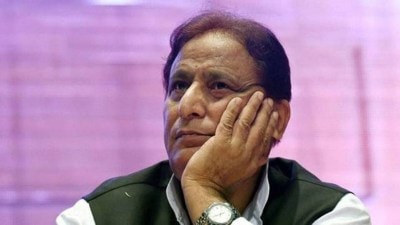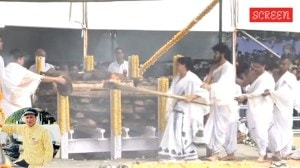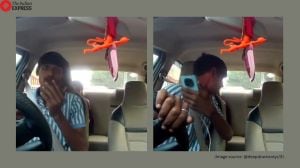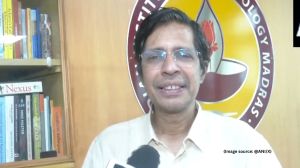No reversal in LPG price rise — Naik
NASHIK, JANUARY 9: Minister of state for petroleum and natural gas Ram Naik said that cooking gas (liquid petroleum gas) would become only...

NASHIK, JANUARY 9: Minister of state for petroleum and natural gas Ram Naik said that cooking gas (liquid petroleum gas) would become only dearer with the reduction in subsidies in future.
Laying the foundation stone for the LPG bottling plant of the Bharat Petroleum Corp Ltd (BPCL) at Sinnar, Naik said on Saturday that the Gujral government had announced a gradual phasing out of subsidies on LPG. The current subsidy of Rs 124 per cylinder will be totally phased out by 2002, he said adding, “The Vajpayee government would not be able to reverse this policy decision.”
Naik pointed out that the Union government spends nearly Rs 12,000 crore on subsidies on petroleum products, including a subsidy of Rs 5.70 per litre on kerosene.
He blamed the State Government for increasing sales tax on petroleum products while restructuring the tax structure adding that the government had levied a fresh sales tax of four per cent on kerosene (on which there was no sales tax earlier) and hiked the tax on LPG from fiveper cent to eight per cent and on other petroleum products from 15 per cent to 20 per cent. He is scheduled to hold discussions with the State Government soon on the issue.
Recently, the Petroleum Ministry had cleared oil exploration projects in 25 blocks and had embarked on an ambitious programme of creating a network of LPG bottling plants across the country, adding 17 new plants to existing 14. Naik assured that the waiting list for LPG connections up to December 1, 1999, of 1.10 crore consumers across the country, would be cleared by December 2000. According to him the LPG was cheaper and more eco-friendly than petrol and diesel.
“While the 20th century belonged to petrol and diesel, LPG gas would be the fuel of 21st century,” he said.
The minister ruled out the possibility of reducing the prices of petroleum products, pointing out that the country was dependent on imports of crude oil (to meet 70 per cent of the country’s requirements) and that the international prices of crude oil had jumpedfrom Rs 3,010 per tonne in February 1999 to Rs 7,832 per tonne last month.
Referring to the adulteration of diesel and petrol, he opined that the disparity in the prices of kerosene and other products led to such situation. “In Pakistan, diesel at Rs 8.29 per litre was cheaper than kerosene at Rs 8.68 per litre, while in Bangladesh both the products were at par at Rs 11.43 per litre.
He pointed out that because of subsidies, kerosene in India was cheaper at Rs 2.59 per litre as against diesel, priced at Rs 13.91 per litre,” he revealed.
Naik announced that his ministry would undertake the introduction of LPG fuel for automobiles and an amendment to the existing Motor Vehicle Act would be presented in the next parliament session to facilitate the change. He further said that piped compressed natural gas (CNG) would be provided to six lakh consumers in the next two years, as against the existing 12,000.
Accompanied by the minister of state for petroleum E Punnuswamy, he also inaugurated the bottlingplant of the Indian Oil Corporation Ltd at Dhotane near Manmad on Saturday.
Photos



- 01
- 02
- 03
- 04
- 05




























